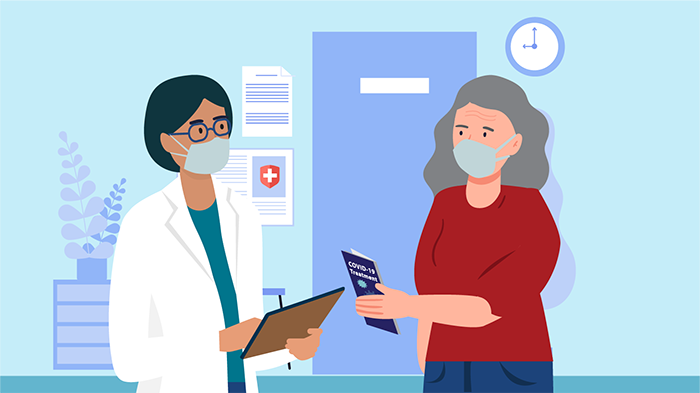What is delayed onset PTSD? Delayed onset PTSD is a type of post-traumatic stress disorder (PTSD) that can occur days, weeks, months or even years after a traumatic event. While it was once believed that people could only develop PTSD immediately after a traumatic event, we now know that this is not always the case. For some people, the symptoms of PTSD may not appear until years later. While there are treatments available that can help manage the symptoms of PTSD, it’s important to seek professional help as soon as possible. In this blog post, we will explore all aspects of delayed onset PTSD, from causes to symptoms to treatment options.
Contents
What is Delayed Onset PTSD?

Delayed onset PTSD is a form of post-traumatic stress disorder (PTSD) that can occur weeks, months, or even years after a traumatic event. While it is not as common as acute PTSD, delayed onset PTSD can be just as debilitating. Symptoms of delayed onset PTSD may include flashbacks, nightmares, and difficulty sleeping. The condition can also cause people to feel detached from others and have trouble concentrating.
These delayed onsets are often brought on by a “trigger”. A trigger is anything—a sound, a sight, a smell—that sets off a memory of the traumatic event. For someone with delayed onset PTSD, the trigger can be anything that reminds them of the trauma they experienced.
Sometimes, people with delayed onset PTSD may not even realize they have the condition. They may think that their symptoms are just a normal part of life. It’s important to understand that delayed onset PTSD is a very real and serious condition that can be treated.
Causes of Delayed Onset PTSD

There are many possible causes of delayed onset PTSD. Some people may develop the disorder after a single, traumatic event. Others may have multiple traumas throughout their lifetime that contribute to the development of PTSD. Still, others may be exposed to ongoing trauma, such as living in a war zone or being a victim of domestic violence.
However, it is thought that delayed onset PTSD may be caused by several factors, including:
Genetics
One of the most common causes of delayed onset PTSD is genetics. That is, if you have a family member who suffers from PTSD, you are more likely to develop the condition yourself.
Brain Chemistry
Changes in brain chemistry may also play a role in the development of delayed-onset PTSD. For example, people with PTSD often have changes in the levels of certain neurotransmitters, such as serotonin and norepinephrine.
Stressful life events
It is believed that exposure to stressful life events (such as military combat or natural disasters) can trigger the development of delayed-onset PTSD. This is because these types of events can cause long-term changes in the way that your brain responds to stress.
Abuse
Abuse, whether it is physical, emotional, or sexual, can lead to delayed onset PTSD. The effects of abuse can be long-lasting and cause a great deal of pain and suffering. If you have been a victim of abuse, it is important to seek help from a therapist or counselor who can help you heal the wounds of your past.
Trauma
Trauma is another event that can trigger delayed onset PTSD. Traumatic events can include things like natural disasters, car accidents, or witnessing violence. If you have experienced a traumatic event, it is important to get professional help to process the event and its aftermath.
Grief
Grief is often overlooked as a possible trigger for delayed onset PTSD. However, grief can be a very intense and overwhelming emotion that can lead to post-traumatic stress. If you are grieving the loss of a loved one, it is important to seek professional help to deal with your grief healthily.
Symptoms of Delayed Onset PTSD

Many people who go through a traumatic experience may have symptoms of PTSD (post-traumatic stress disorder) soon after the event. For some people, however, symptoms may not appear until months or even years later. This is called delayed onset PTSD.
Someone with delayed onset PTSD may have all of the same symptoms as someone with regular PTSD, including:
Detachment and Numbness
Some people with PTSD feel detached from others and have trouble feeling emotions. They may feel numb and have trouble experiencing positive emotions. This is called emotional numbing.
Intrusive Thoughts
Sometimes, people with PTSD can’t stop thinking about the event. They may have intrusive thoughts about what happened or feel like they are reliving the event.
Hyperarousal
Hyperarousal is when someone is constantly on edge. They may be easily startled or always feel like they need to be on guard. This can lead to trouble sleeping and irritability.
Avoidance
Sometimes people with delayed onset PTSD don’t even realize they have the condition. They may think that their symptoms are just a normal part of life. Another sign that someone may have delayed onset PTSD is if they avoid anything that reminds them of the trauma. This may include people, places, thoughts, or activities.
Negative Changes in Mood and Thinking
Another sign of delayed onset PTSD is negative changes in mood and thinking. This may include feeling hopeless, losing interest in activities that used to be enjoyable, or having negative thoughts about oneself.
Changes In Physical And Emotional Reactions
Someone with delayed onset PTSD may also have changes in their physical and emotional reactions. They may startle easily, have trouble sleeping, or be constantly on edge. They may also have problems with alcohol or drugs, or become more aggressive.
Treatment for Delayed Onset PTSD

There are several effective treatments for delayed onset PTSD, which can be tailored to the individual’s needs. Some of these are:
Medications
One of the most common treatments for delayed-onset PTSD is medication. There are several different types of medications that can be used to treat the symptoms of PTSD, including antidepressants, anti-anxiety medications, and antipsychotics. These medications are also often used in combination with talk therapy.
Support groups
Support groups can also be helpful for people with this type of PTSD. These groups provide a safe space for people to share their experiences and receive support from others who understand what they are going through. Support groups can be found both in person and
Psychotherapy
Psychotherapy is another effective treatment for this type of PTSD. This type of therapy can help you to understand and process your thoughts and emotions surrounding the traumatic event. It can also help you to develop healthy coping mechanisms for dealing with stress and anxiety.
CBT is a type of therapy that is specifically designed to treat PTSD. This therapy helps you to understand and change the negative thoughts and beliefs that are associated with your PTSD. CBT can also help you to develop healthy coping mechanisms for dealing with stress.
Exposure therapy is a specific type of psychotherapy that involves gradually exposing yourself to the things that trigger your PTSD symptoms. This type of therapy can be very helpful in helping you to overcome your fear and anxiety.
Eye movement desensitization and reprocessing (EMDR)
EMDR is a specific type of therapy that uses eye movements to help you process and heal from your trauma. This type of therapy can be very effective in helping you to overcome your PTSD symptoms.
Prevention of Delayed Onset PTSD
Many things can be done to prevent this type of PTSD. It is essential to identify individuals who may be at risk and provide them with support and resources.
Individuals who have experienced a traumatic event should be encouraged to seek professional help if they are having difficulty coping. Early intervention is critical in preventing the development of PTSD.
Support groups can also help prevent this type of PTSD. These groups provide a safe space for individuals to share their experiences and feelings. They can also offer support and understanding from others who have been through similar experiences.
Some other preventative measures that can be taken to reduce the risk of developing PTSD include:
- Identifying individuals who may be at risk and providing them with support and resources.
- Encouraging individuals who have experienced a traumatic event to seek professional help if they are having difficulty coping.
- Providing support and understanding from others who have been through similar experiences.
- Educating individuals about the signs and symptoms of PTSD.
- Helping individuals develop healthy coping mechanisms.
Conclusion
Delayed onset of PTSD is a real and serious issue. It can happen to anyone who has been through a traumatic event, even if they didn’t seem to be affected at the time. If you think you might be suffering from delayed onset PTSD, it’s important to seek help from a professional who can assess your symptoms and provide treatment. With the right support, you can start to heal the trauma and begin to live a full life again.
Hope this article was of help to you! If you are suffering from mental health disorders, you may seek help from Therapy Mantra. We have a team of highly trained and experienced therapists who can provide you with the tools and skills necessary for overcoming mental health disorders. Contact us today to schedule an online therapy or download our free Android or iOS app for more information.


